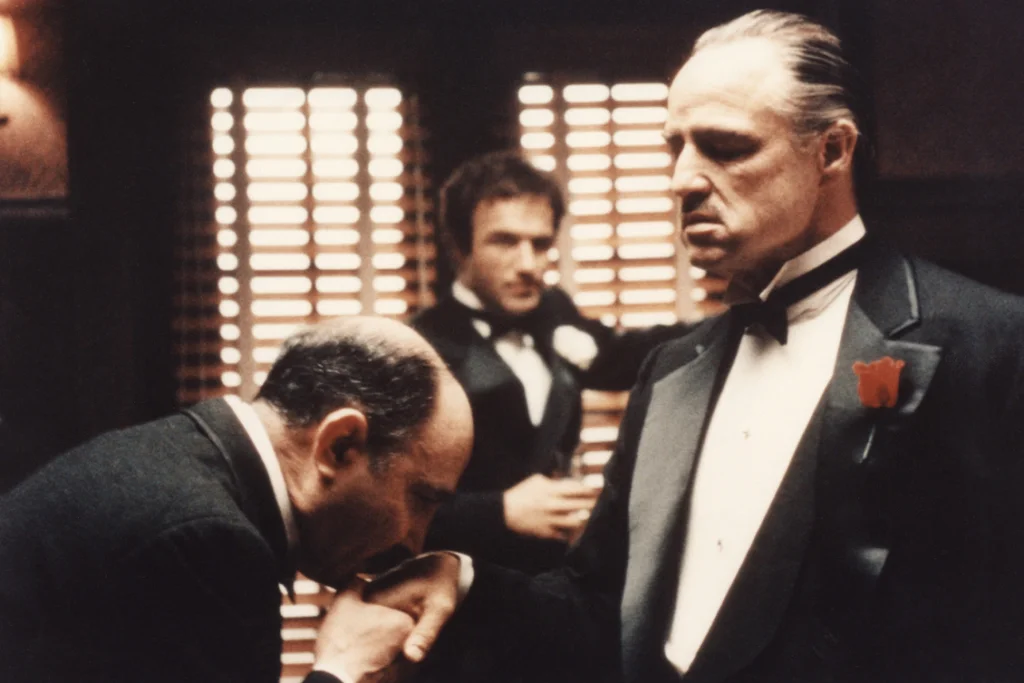1. The Godfather (1972)
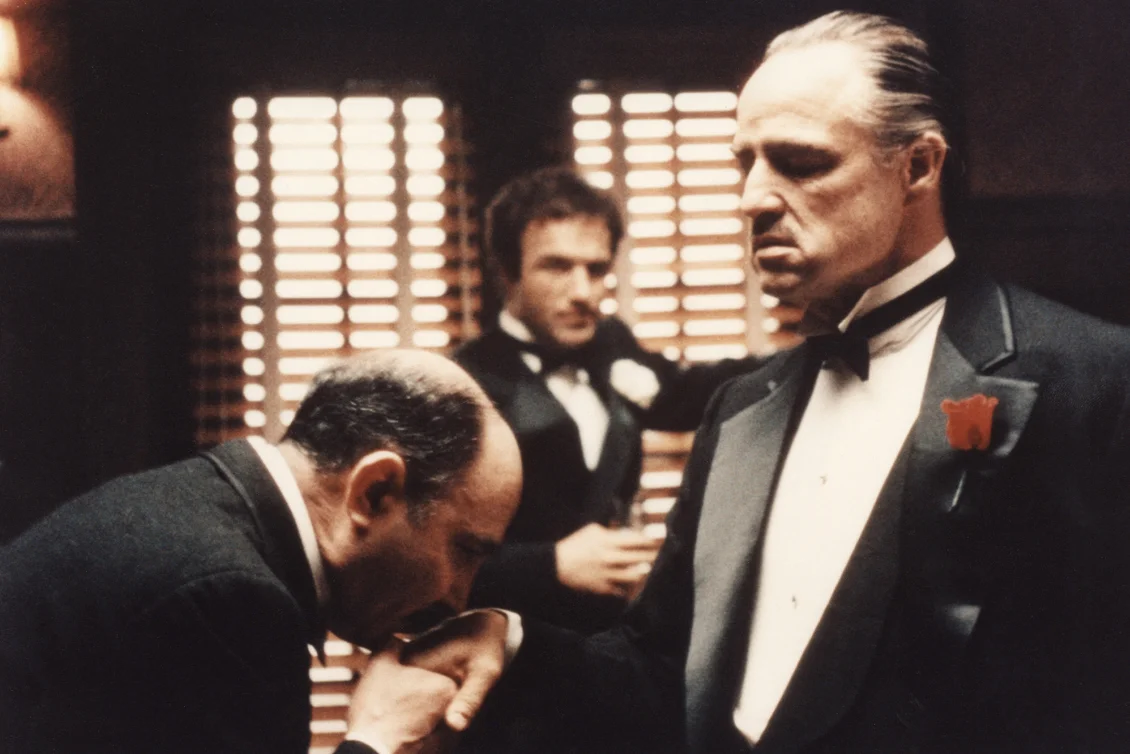
Few films have the lasting impact of The Godfather. From the opening moments with Marlon Brando’s commanding performance as Vito Corleone, it’s clear this movie is something special. The complex portrayal of family, loyalty, and power resonates across generations, while the deep moral dilemmas keep audiences on edge. Every scene, from the famous horse head to the chilling “I’ll make him an offer he can’t refuse,” is burned into our collective memory. The way it unfolds slowly, layering every character’s motivations, ensures we never tire of watching it. The atmosphere, the music, and the quiet intensity of the characters add to the film’s unparalleled legacy. It’s a movie that lingers in the mind, leaving viewers to reflect on the choices made and their inevitable consequences. Every time we watch, it feels like we’re discovering something new, making The Godfather a timeless classic.
What truly sets The Godfather apart is its ability to evolve with each viewing. The intricate relationships between the characters, from Vito’s troubled son Michael to the loyalty tests between allies, create a portrait of family dynamics that transcends time. The film is just as much about the psychological battle for power as it is about betrayal, and it’s that complexity that keeps us coming back. Whether it’s the performances, the cinematography, or the haunting score, The Godfather isn’t just a film; it’s an experience. Every time we revisit this masterpiece, it offers up new layers, new revelations, and reminds us why it remains at the pinnacle of American cinema.
2. A Clockwork Orange (1971)
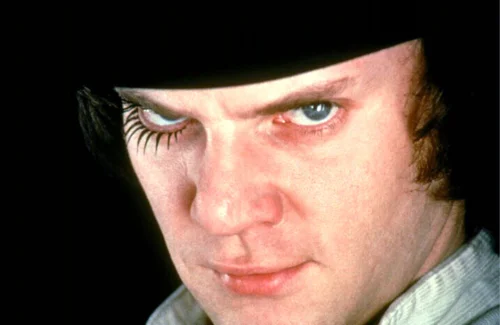
Stanley Kubrick’s A Clockwork Orange shocked audiences upon its release, and even decades later, its disturbing imagery and unsettling themes still leave a lasting impression. The film’s exploration of free will, societal control, and the nature of violence continues to provoke discussion. Malcolm McDowell’s performance as Alex, with his wild-eyed intensity, is a standout, blending charm and menace in a way that’s unforgettable. The unsettling use of classical music juxtaposed with violence adds a surreal layer, making each scene feel like a twisted dream. The movie’s distinct visual style, from the futuristic costumes to the stark, industrial settings, creates an atmosphere that stays with you long after the credits roll. Even today, it’s a film that remains incredibly relevant, raising questions about human nature and the system we live in. No matter how many times you see it, A Clockwork Orange always feels just as disorienting and thought-provoking as the first time.
What makes A Clockwork Orange so unforgettable is its unsettling ability to remain both fascinating and horrifying. The violence and chaos on screen are not mere shock tactics but a commentary on society’s deeper issues, such as free will, morality, and the consequences of unchecked power. The film’s visual imagery, particularly the use of the “droog” outfits and the dissonant music, sticks in the viewer’s mind long after the movie ends. It’s a film that refuses to offer easy answers, instead leaving us to wrestle with its themes long after the final frame. A Clockwork Orange is not just a film; it’s an unsettling experience that forces us to confront the uncomfortable truths about human behavior and societal structures.
3. Chinatown (1974)
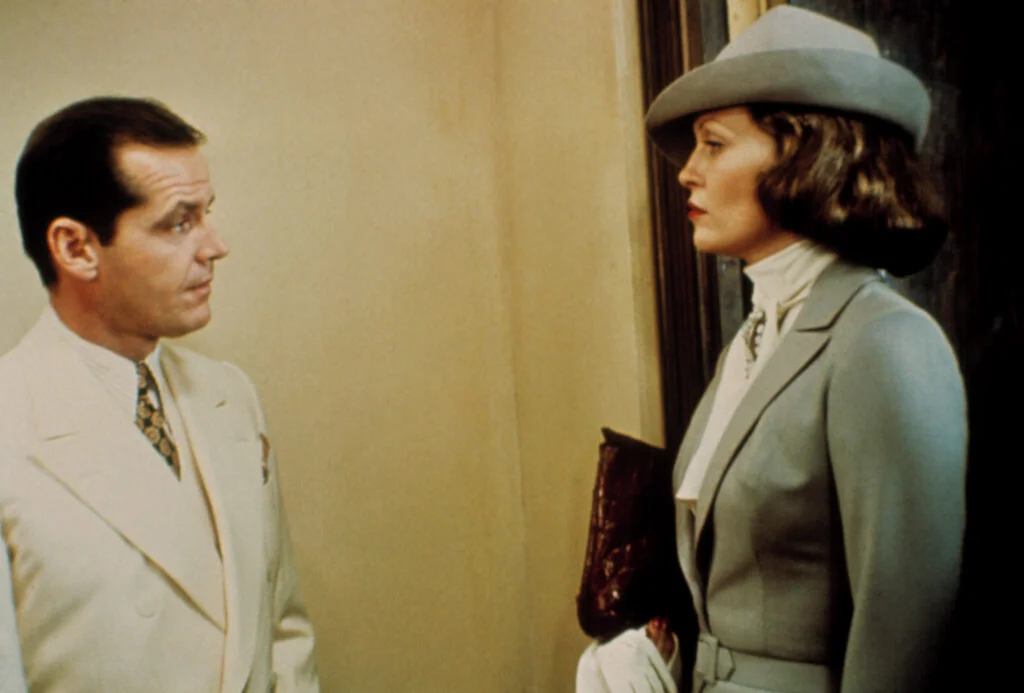
Roman Polanski’s Chinatown is a perfect example of a film that never loses its grip on you. As a neo-noir masterpiece, it takes the classic detective story and twists it into something far darker. Jack Nicholson’s portrayal of private investigator J.J. Gittes is both sharp and tragic, perfectly balancing the cynicism of the genre with a surprising vulnerability. The film’s portrayal of 1930s Los Angeles as a city of corruption and decay still resonates, especially with the tragic, morally ambiguous ending that leaves us speechless. The slow build-up, the hidden secrets, and the tension between characters all contribute to its magnetic pull. Every detail, from the subtle plot reveals to the haunting score by Jerry Goldsmith, adds to the film’s atmosphere. Chinatown is a film where everything seems to unravel with perfect inevitability, making its impact hard to forget. Every viewing uncovers more about its layered narrative and complex characters, ensuring it’s always an experience worth revisiting.
The film’s ending is one of the most iconic in cinematic history, with its jaw-dropping plot twists that completely upend everything we thought we knew. The fate of Faye Dunaway’s character, Evelyn Mulwray, and her tragic entanglements with both the law and family dynamics is a gut-wrenching conclusion to a story built on lies and deception. Chinatown delivers a sense of hopelessness and inevitability that is rare in cinema. The film’s bleakness, however, is what makes it so powerful—it’s a reminder that not all stories end on a high note, and some mysteries are better left unsolved. It’s a masterful exercise in noir storytelling that remains a benchmark for films in the genre.
4. Taxi Driver (1976)
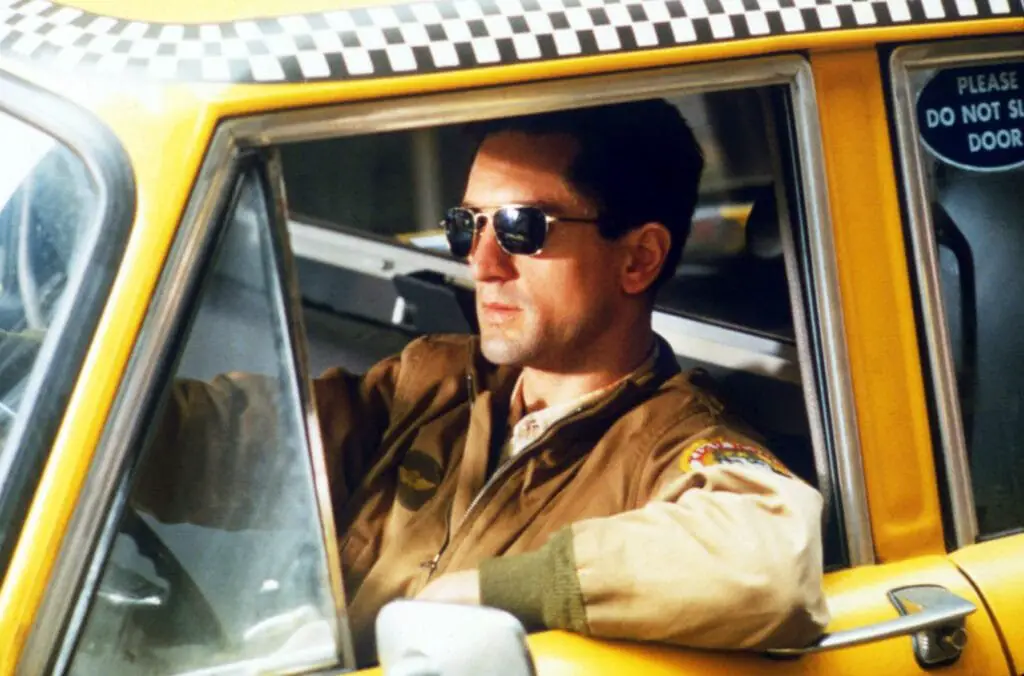
Martin Scorsese’s Taxi Driver is one of those films that grabs you by the soul and doesn’t let go. Robert De Niro’s performance as Travis Bickle, a lonely, disillusioned taxi driver, is haunting and unforgettable. The film’s gritty portrayal of New York City in the ‘70s, with its dark streets and troubled characters, reflects the inner turmoil of its protagonist. The slow descent into madness feels painfully real, making each scene more intense than the last. It’s a film that taps into the raw emotions of isolation, desperation, and the search for meaning. The iconic line, “You talkin’ to me?” is just one of many moments that have left a mark on pop culture, but it’s the quiet moments that stick with you. The haunting score by Bernard Herrmann further heightens the sense of unease, making the movie’s final moments even more chilling. Every time you watch Taxi Driver, the complexity of Bickle’s character and the film’s exploration of alienation hits differently, making it impossible to forget.
What makes Taxi Driver unforgettable is its ability to evoke such a strong sense of both sympathy and fear for its central character. As Bickle becomes increasingly unstable, we feel his disillusionment with the world around him, but we’re also horrified by the actions he’s willing to take to seek redemption. The film’s exploration of masculinity, societal breakdown, and psychological trauma still feels deeply relevant today. The ending, in particular, leaves us questioning the nature of heroism and villainy, as we’re never fully sure whether Bickle’s actions are justified or a product of his disturbed mind. Taxi Driver is a chilling character study, and its impact grows with every viewing.
5. The Exorcist (1973)
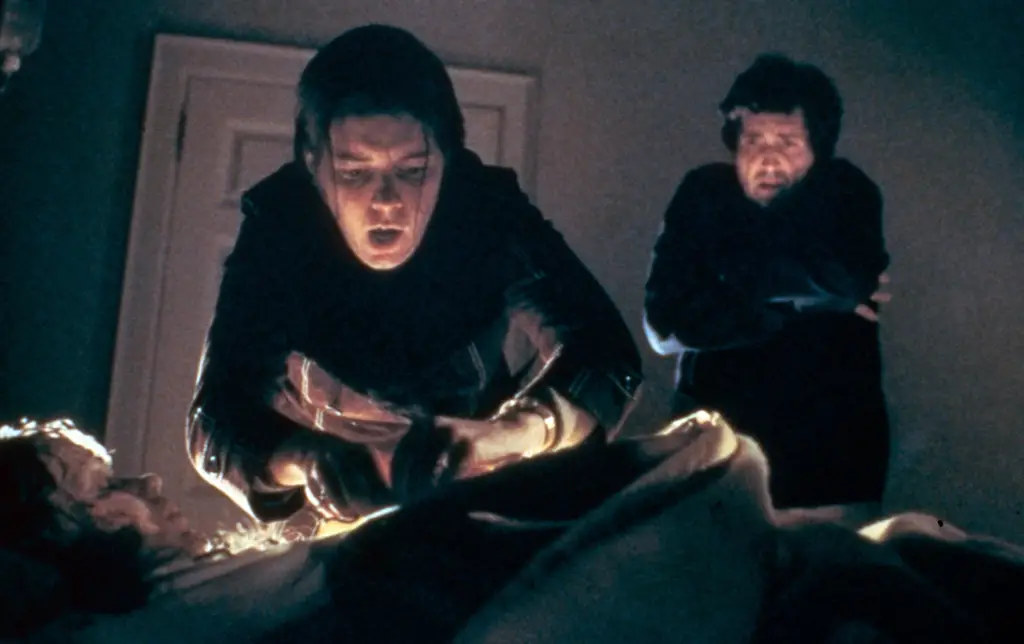
The sheer terror of The Exorcist continues to stand the test of time. Few horror films have reached the level of psychological and physical horror that this classic does. The chilling performances, especially from Linda Blair as the possessed Regan, create a sense of dread that builds and never quite releases. William Friedkin’s direction keeps us on the edge of our seats, with each moment of horror feeling earned and not gratuitous. The film’s exploration of faith, good versus evil, and the breakdown of a family remains profoundly impactful, especially when set against the stark, unsettling atmosphere. Even the scenes that aren’t overtly scary still leave a lasting sense of unease. Watching The Exorcist is an experience that goes beyond simple frights; it’s a journey into the unknown, leaving us with an overwhelming sense of fear and awe. It’s one of those films that continues to haunt the mind long after the credits roll.
What makes The Exorcist truly terrifying is its portrayal of innocence corrupted, which is felt most deeply through Regan’s transformation. The horror isn’t just in the grotesque physical manifestations but in the loss of control over one’s body and mind. The terror of not knowing whether the evil can be vanquished is what keeps us glued to the screen. Even as horror films have evolved, The Exorcist remains the gold standard because of its ability to scare in ways that feel raw and real. It’s the psychological weight, the primal fear of something unseen and beyond our comprehension, that continues to make it one of the most frightening movies ever made.
6. Star Wars: Episode IV – A New Hope (1977)
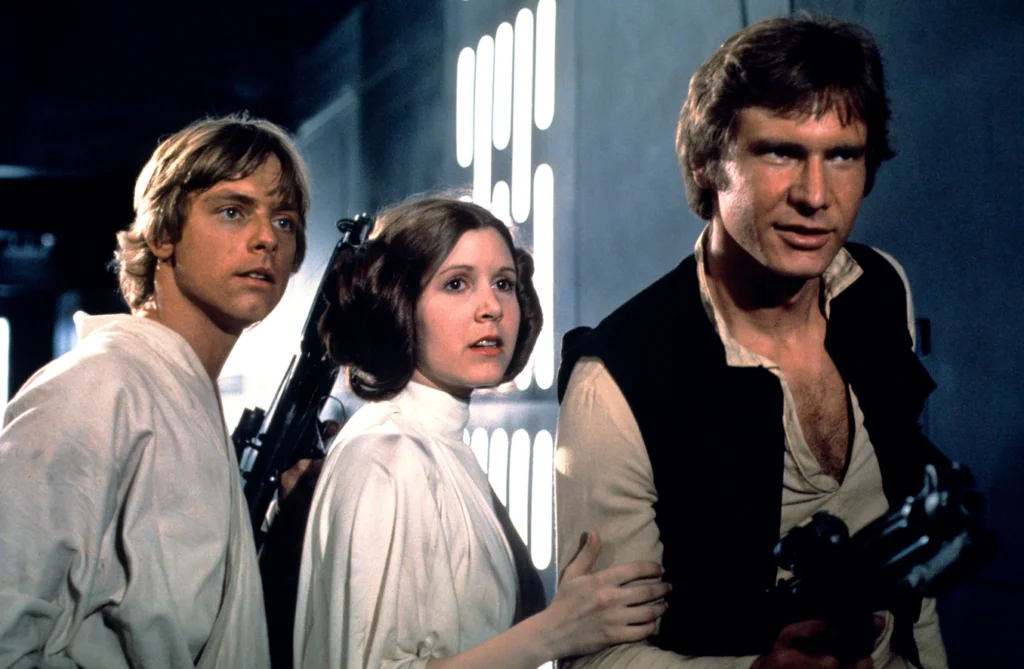
Star Wars: A New Hope revolutionized cinema and became a cultural phenomenon that still resonates with audiences. George Lucas created a galaxy far, far away that felt both fantastical and tangible, thanks to groundbreaking special effects and a compelling story. The film’s heroes—Luke Skywalker, Princess Leia, and Han Solo—became icons, and the evil Darth Vader remains one of the most recognizable villains in cinematic history. The mix of adventure, romance, and thrilling space battles captured the imaginations of millions. John Williams’ unforgettable score only enhances the film’s magic, making every moment feel larger than life. Even though we’ve all seen it countless times, the excitement of watching it never fades. The legacy of A New Hope continues to influence films and pop culture, and it remains as thrilling and inspiring today as it was when first released. Watching it again always reminds us why Star Wars became a legend in the first place.
What sets A New Hope apart is how it seamlessly blends the epic with the intimate. While the vastness of space is explored in thrilling battles, the film also takes time to focus on the personal journey of its characters. Luke’s growth from an unsure farm boy to a hero standing against an evil empire is universal in its appeal. The relationships, whether it’s the burgeoning love between Leia and Han or the mentorship between Obi-Wan and Luke, make us invest in the characters beyond their roles in the battle between good and evil. It’s a space opera that feels like a fairy tale, and even after all these years, it still delivers the same sense of wonder that it did when we first encountered it.
7. Apocalypse Now (1979)
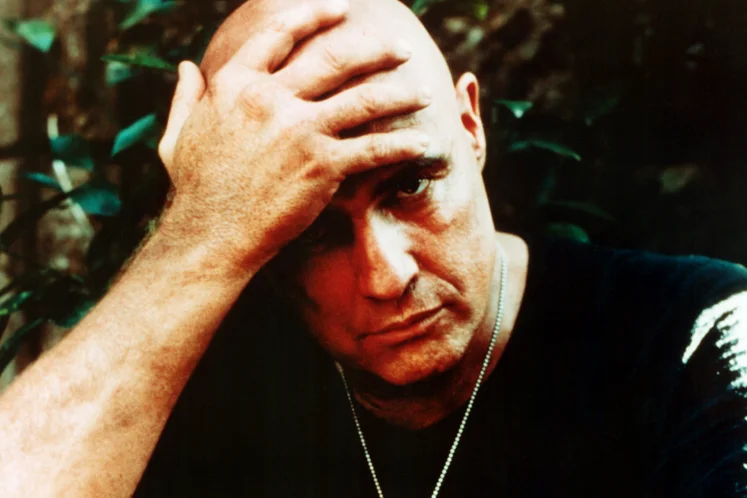
Apocalypse Now stands as one of the most intense and thought-provoking war films ever made. Francis Ford Coppola’s haunting vision of the Vietnam War is an unflinching exploration of the madness of war, and it’s a film that gets under your skin. Marlon Brando’s portrayal of Colonel Kurtz is one of his most enigmatic and unsettling performances, while Martin Sheen’s journey into the heart of darkness is both tragic and profound. The film’s nightmarish imagery, from the surreal helicopter attack to the eerie, almost mystical moments with Kurtz, create an atmosphere of dread and madness. The sound design and score, including the iconic “The End” by The Doors, elevate the film’s already powerful impact. Every viewing reveals more about its complex themes, from the effects of war on the psyche to the loss of humanity in the face of violence. Apocalypse Now is a film that demands attention, making it a cinematic experience that is impossible to forget.
What makes Apocalypse Now unforgettable is its ability to take viewers on an unrelenting emotional and psychological journey. The horrors of war are depicted not just through violence, but through the internal breakdown of the characters, particularly Captain Willard as he journeys toward Kurtz. The film’s dreamlike quality, its disjointed narrative, and the descent into chaos mirror the madness of war itself, forcing us to question our perceptions of reality. Apocalypse Now leaves us with more questions than answers, making its experience something that we continue to grapple with long after the film ends.

